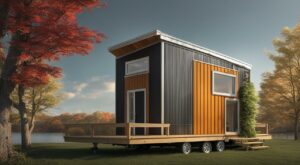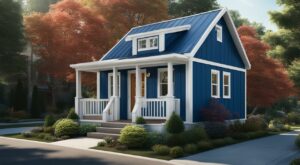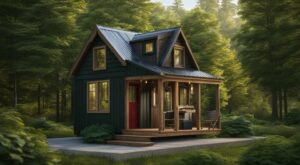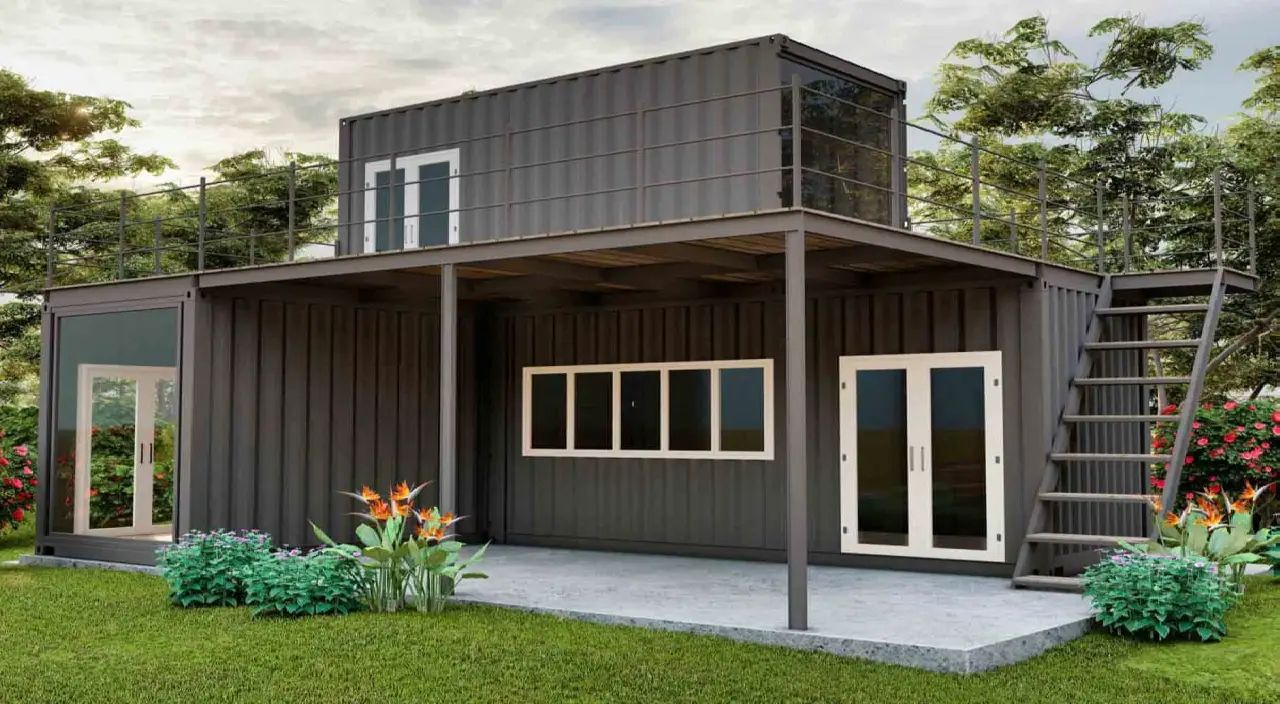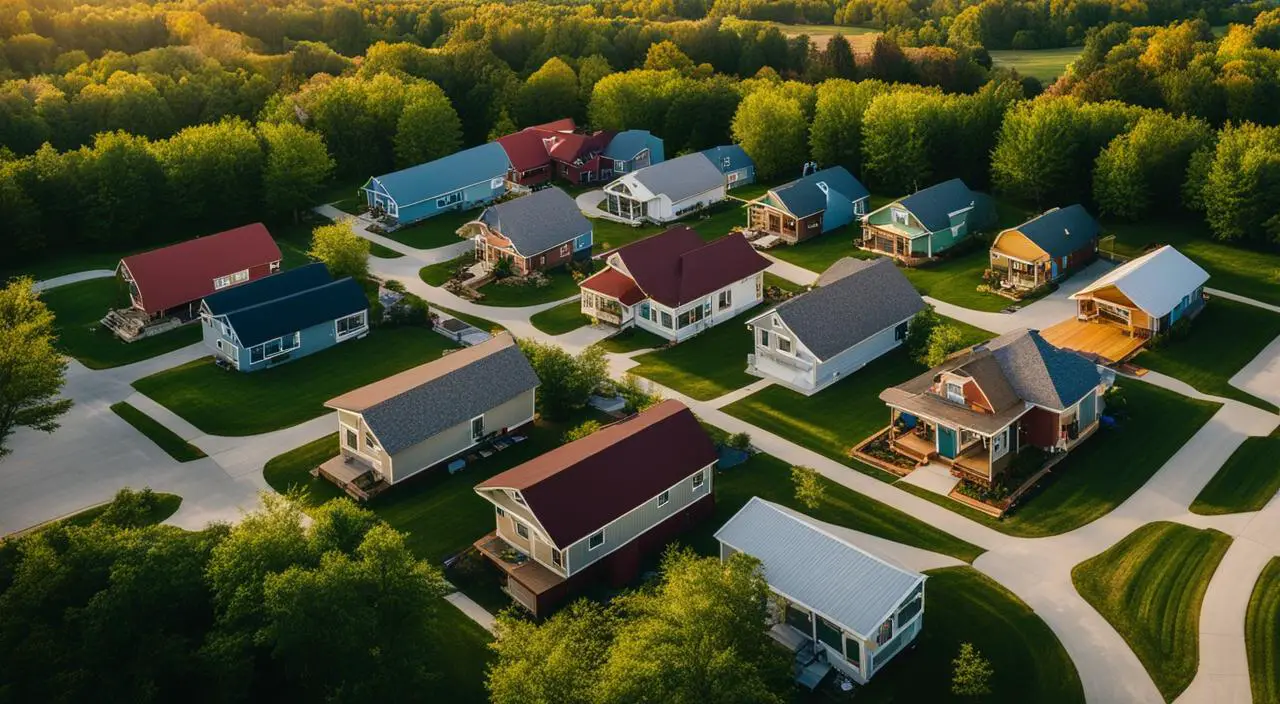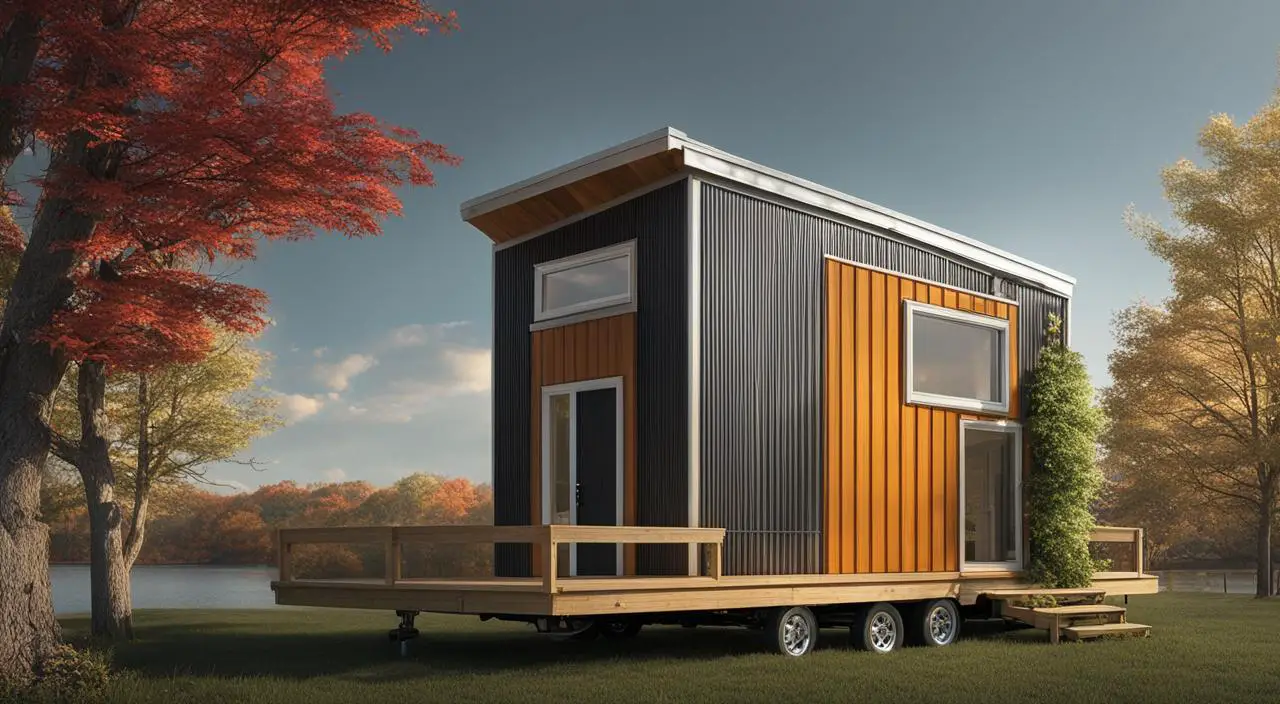Your cart is currently empty!
Tiny House Laws in Pennsylvania: Understanding The Law
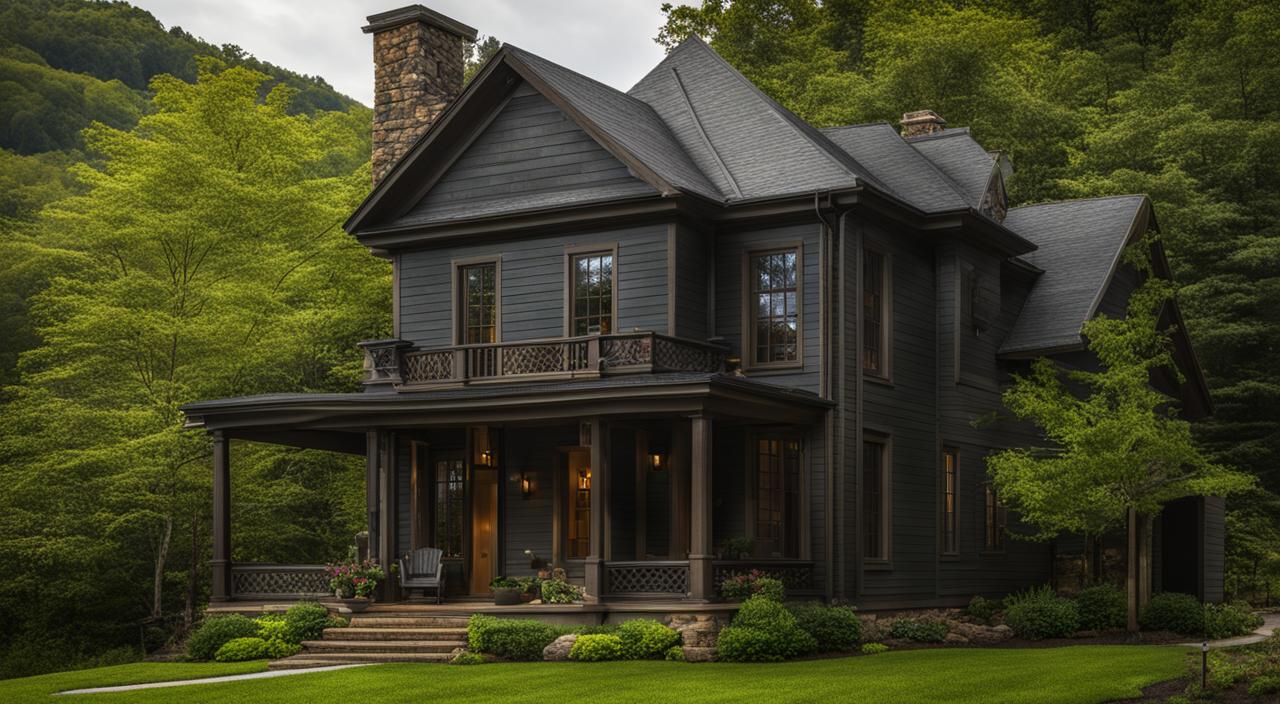
Affiliate Disclaimer: This post may contain affiliate link or links
Living in a tiny house is becoming an increasingly popular trend. However, before pursuing this lifestyle, it is crucial to understand the tiny house laws in Pennsylvania.
Contents
Tiny house laws vary from state to state, and Pennsylvania has specific laws and regulations governing the construction, placement, and living in tiny houses.
It’s essential to familiarize yourself with the local zoning laws, building codes, and legal requirements to ensure compliance and avoid any potential legal issues.
In this section, we will provide an overview of the tiny house laws in Pennsylvania and explain the importance of understanding the legalities surrounding tiny house living.
Zoning Laws for Tiny Houses in Pennsylvania
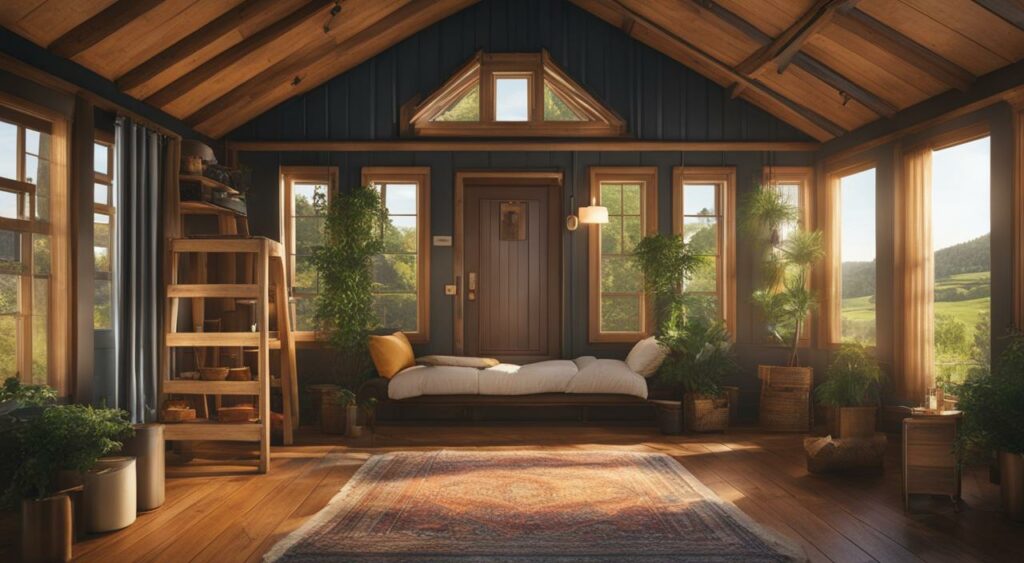
When it comes to building and placing a tiny house in Pennsylvania, understanding the zoning laws and legal requirements is crucial.
Local zoning laws dictate where and how you can build a tiny house in the state, and failure to comply with these regulations can result in fines and legal issues.
Building codes for tiny homes in Pennsylvania may vary depending on the local jurisdiction and the type of construction.
It is important to research and consult with local building officials to ensure that your tiny home meets all the necessary building codes for safety and compliance.
Legal requirements for tiny houses in Pennsylvania include obtaining the necessary permits and adhering to zoning regulations, building codes, and safety standards.
A building permit is required for the construction of a tiny house, and the permit process involves submitting detailed plans and complying with zoning laws and building codes.
To give an example of the zoning laws for tiny houses in Pennsylvania, the city of Lancaster allows tiny houses on wheels to be placed on residential lots as long as they meet certain safety and building requirements.
However, the city of Philadelphia does not have specific regulations for tiny houses on wheels and requires them to be placed on a foundation.
| City | Zoning Laws for Tiny Houses |
|---|---|
| Pittsburgh | Allows tiny houses on wheels in backyard gardens, provided they meet specific requirements. |
| Philadelphia | Requires tiny houses to be placed on a foundation, with no specific regulations for tiny houses on wheels. |
| Lancaster | Allows tiny houses on wheels to be placed on residential lots as long as they meet certain safety and building requirements. |
It is important to note that zoning laws for tiny houses in Pennsylvania are subject to change.
And it is recommended to consult with local officials and stay up-to-date on any new regulations or laws that may affect tiny house living in the state.
Overall, understanding the zoning laws, building codes, and legal requirements for tiny houses in Pennsylvania is essential for anyone considering building or living in a tiny house.
By complying with these regulations, you can ensure a safe and lawful living arrangement in your tiny home.
Tiny House Building Codes in Pennsylvania
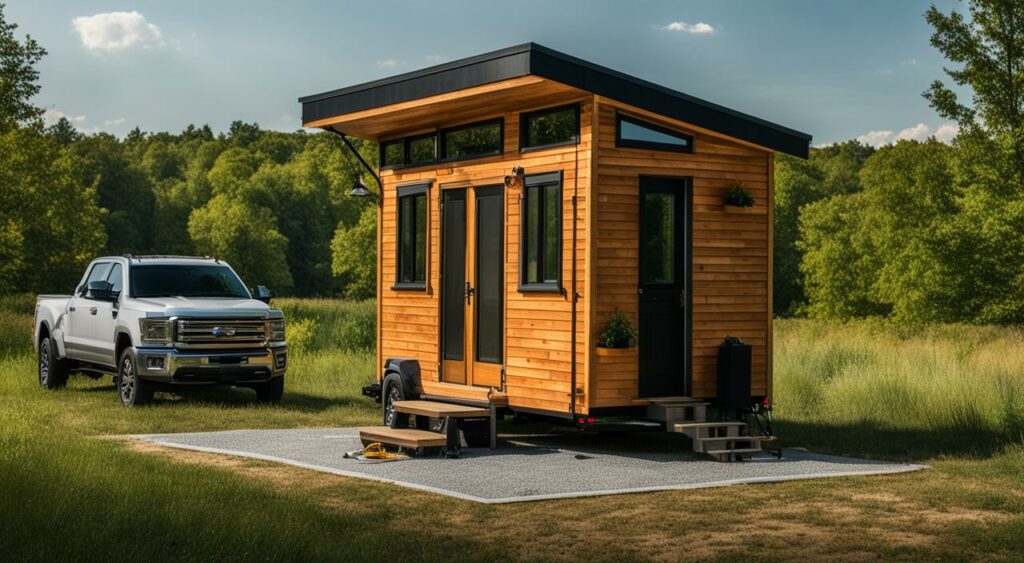
When building a tiny house in Pennsylvania, it is important to be aware of the building codes that apply to your project.
These codes ensure that your tiny house meets the minimum safety and quality standards set by the state.
Failure to comply with these codes can lead to fines or legal consequences.
The building codes in Pennsylvania are regulated by the Pennsylvania Department of Labor and Industry.
However, there may be some exceptions or modifications to these codes for tiny houses.
It is important to consult with local authorities and building code officials to ensure compliance.
Some of the building codes that may apply to tiny houses in Pennsylvania include:
| Code | Description |
|---|---|
| International Residential Code (IRC) | Establishes minimum standards for construction, plumbing, mechanical, energy, and electrical systems in residential buildings. |
| National Electric Code (NEC) | Establishes safe electrical practices for residential and commercial building installations. |
| International Plumbing Code (IPC) | Addresses proper installation of plumbing systems to protect health and safety. |
Builders of tiny houses in Pennsylvania must also follow the Occupational Safety and Health Administration (OSHA) standards for construction workers.
These standards are designed to protect the safety and health of workers in the construction industry.
It is important to note that building codes may vary depending on the location of your tiny house in Pennsylvania.
Some cities and municipalities may have additional or modified building codes that apply to tiny houses.
Permits and Regulations for Tiny Houses in Pennsylvania
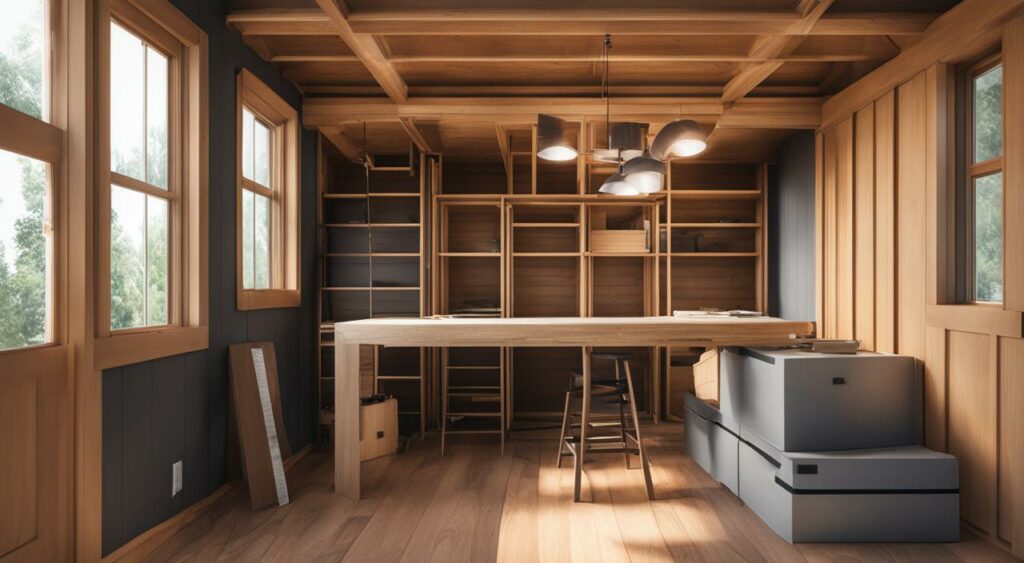
Before building or living in a tiny house in Pennsylvania, it is necessary to obtain the required permits and understand the regulations.
The permit process is the same for tiny houses as it is for traditional houses, and the type of permit required depends on the intended use of the tiny house.
In Pennsylvania, state laws require all buildings to have a certificate of occupancy.
To obtain this certificate, the building must comply with all relevant building codes and zoning regulations.
The certificate of occupancy is necessary to move into the tiny house and is also required when selling the property.
The permit process for tiny houses in Pennsylvania can be complex and varies depending on local zoning regulations.
The zoning regulations determine where and how a tiny house can be placed on a property.
For example, some areas may allow for tiny houses on foundations, while others only permit tiny houses on wheels.
In addition, Pennsylvania has specific state laws that apply to tiny houses, such as minimum square footage and land use regulations, which must be followed.
Failure to comply with these regulations can result in fines and legal action.
Obtaining Permits for Tiny Houses in Pennsylvania
The first step in obtaining permits for a tiny house in Pennsylvania is to contact the local zoning department.
They can provide information on zoning regulations for the specific location where the tiny house will be placed.
This includes information on land use restrictions, building codes, and permit requirements.
Once the zoning regulations have been reviewed, the next step is to apply for the necessary permits.
The permit application process varies depending on the location and intended use of the tiny house.
In Pennsylvania, a building permit is required for any new construction or renovation work. This includes the construction of a tiny house.
When applying for a building permit, it is essential to provide detailed plans and specifications for the tiny house.
This includes information on the materials to be used, structural details, and the intended use of the tiny house.
The plans must be reviewed and approved by the zoning office before a permit can be issued.
Zoning Regulations for Tiny Houses in Pennsylvania
Zoning regulations in Pennsylvania govern where and how a tiny house can be placed on a property. The regulations vary depending on the location and intended use of the tiny house.
For example, some areas may permit tiny houses on foundations, while others only permit them on wheels.
In addition, there are specific requirements for setbacks, lot coverage, and minimum square footage.
These regulations ensure that the tiny house is safe and does not pose a risk to the environment or public health.
State Laws for Tiny Houses in Pennsylvania
Pennsylvania has specific state laws that apply to tiny houses.
These laws cover a range of topics, including minimum square footage requirements, permitted land use, and building codes.
According to Pennsylvania state law, a dwelling unit must have at least one room with a minimum area of 120 square feet. In addition, the minimum ceiling height is 7 feet.
These requirements ensure that the dwelling unit is safe and habitable for individuals living in the tiny house.
There are also regulations regarding the use of composting toilets and the type of foundation used for the tiny house.
In addition, the tiny house must comply with the state’s building codes, including electrical, plumbing, and mechanical codes.
Zoning Regulations in Pennsylvania
Understanding zoning regulations in Pennsylvania is crucial for anyone considering building or living in a tiny house.
The regulations dictate where and how a tiny house can be placed on a property and must be followed to avoid legal action.
When applying for permits, it is essential to provide detailed plans and specifications for the tiny house, which must be reviewed and approved by the zoning office.
The state’s building codes and zoning regulations ensure that the tiny house is safe and habitable for individuals living in it.
Minimum Square Footage and Land Use Regulations in Pennsylvania
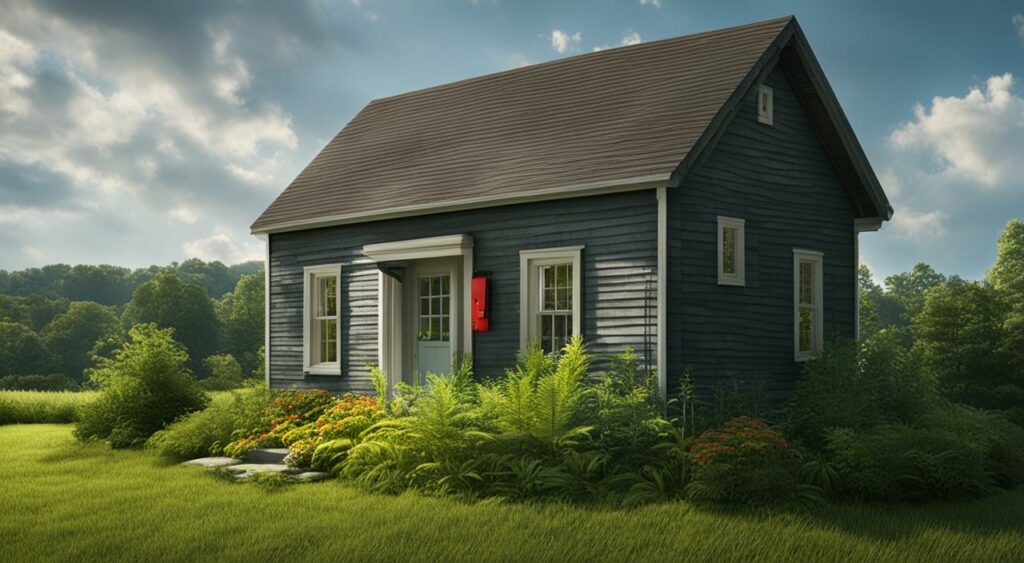
When it comes to tiny houses in Pennsylvania, there are specific regulations regarding minimum square footage and permitted land use.
These regulations vary depending on the area and local zoning laws.
Currently, there is no statewide minimum square footage requirement for tiny houses in Pennsylvania.
However, local zoning laws may require a specific minimum square footage for homes in certain areas.
Prospective tiny house owners should research the local zoning laws and building codes to ensure compliance.
Permitted land use is also an important consideration for tiny house living in Pennsylvania.
While some areas may allow tiny houses to be placed on residential lots, others may require a minimum lot size or prohibit tiny houses altogether.
Minimum Square Footage Regulations by City in Pennsylvania
| City | Minimum Square Footage |
|---|---|
| Philadelphia | No minimum square footage requirement for Accessory Dwelling Units (ADUs) |
| Pittsburgh | Minimum of 350 square feet for any residential dwelling |
| Harrisburg | No minimum square footage requirement for ADUs |
Note: This table is only a sample of the minimum square footage regulations in specific cities in Pennsylvania and is not exhaustive.
For detailed information, please refer to the local zoning laws and building codes.
Additionally, it is important to note that while tiny houses on wheels may provide a way to bypass certain zoning regulations, they may still be subject to regulations regarding land use and building codes.
It is important to check with local authorities before embarking on the construction of a tiny house on wheels.
Overall, understanding the minimum square footage and permitted land use regulations for tiny houses in Pennsylvania is essential for anyone considering this unique lifestyle.
By researching local zoning laws and building codes, prospective tiny house owners can ensure compliance and find a suitable location to call home.
Tiny House on Wheels Laws in Pennsylvania
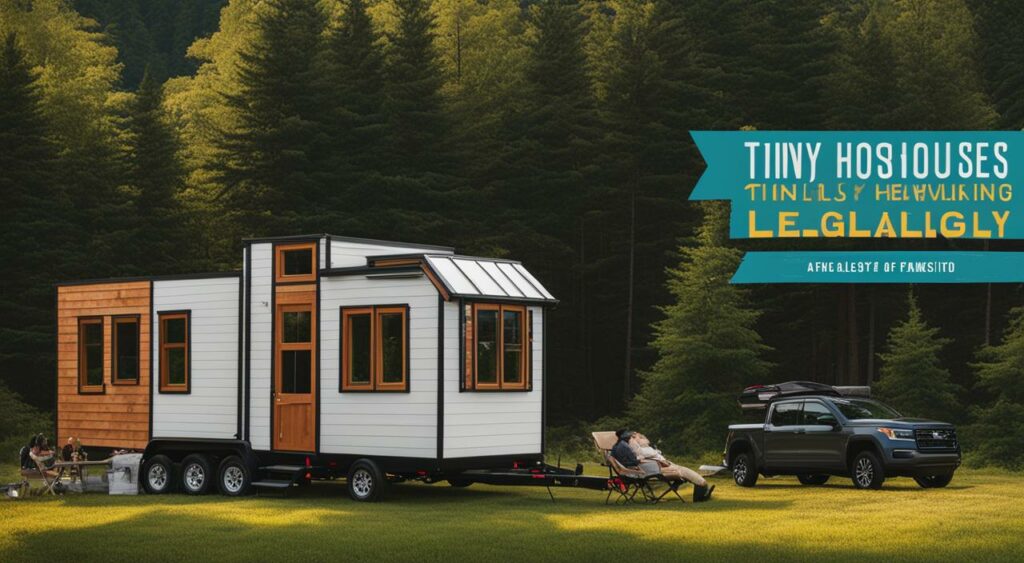
For those considering a tiny house on wheels in Pennsylvania, it is essential to understand the laws and regulations surrounding this type of dwelling.
One of the critical considerations for tiny houses on wheels is whether they are considered RVs or permanent residences.
If a tiny house on wheels is categorized as an RV, it must comply with the regulations established by the Recreational Vehicle Industry Association (RVIA).
According to the Pennsylvania Department of Transportation, a tiny house on wheels is classified as an RV if it meets the following criteria:
| RV Classification Criteria |
|---|
| The living area is less than 400 square feet. |
| The unit is built on a wheeled chassis. |
| The unit is designed for transportation on the highway. |
If a tiny house on wheels does not meet these criteria, it may be categorized as a permanent residence. In this case, it must comply with all local zoning laws and building codes.
It’s important also to note that some municipalities in Pennsylvania may restrict or prohibit the use of tiny houses on wheels within their jurisdiction.
Therefore, it is essential to research the local regulations regarding tiny houses on wheels before embarking on the construction or purchase of one.
Tiny House Communities in Pennsylvania
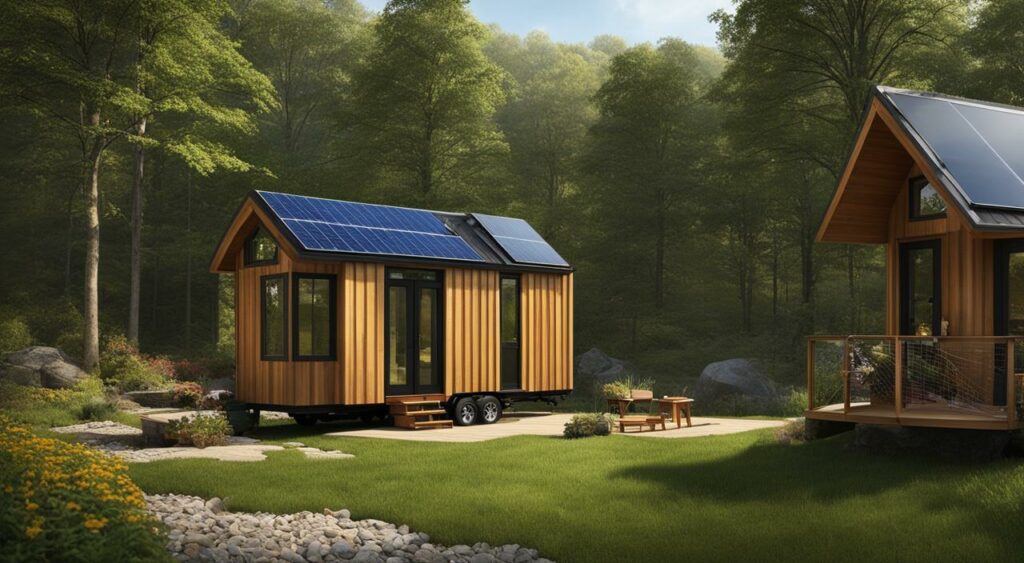
Living in a tiny house can be a fulfilling and rewarding experience, but it can also be isolating.
Fortunately, Pennsylvania is home to several tiny house communities that provide a sense of community and belonging.
These communities range from RV parks and campgrounds to intentional communities and co-housing developments.
One such community is the Tiny Estates in Elizabethtown, PA. This community features 28 tiny homes, each with its own unique design and style.
The community also offers amenities such as a fitness center and community garden.
The Bungalows at Sandy Ridge in Quarryville, PA is another tiny house community that offers a sense of community and connection.
The community features 18 tiny homes designed to be energy-efficient and eco-friendly. Residents can also enjoy amenities such as a community garden and fire pit.
For those interested in co-housing, the Lancaster Co-Housing Community in Lancaster, PA may be a good fit.
This intentional community features 34 homes, including several tiny homes, and is designed to promote community living and sustainability.
Living in a tiny house community in Pennsylvania provides a unique opportunity to connect with like-minded individuals and embrace a simpler way of life.
However, it is important to remember that each community may have its own rules and regulations regarding tiny houses.
Pennsylvania’s Tiny House Movement and Legislation
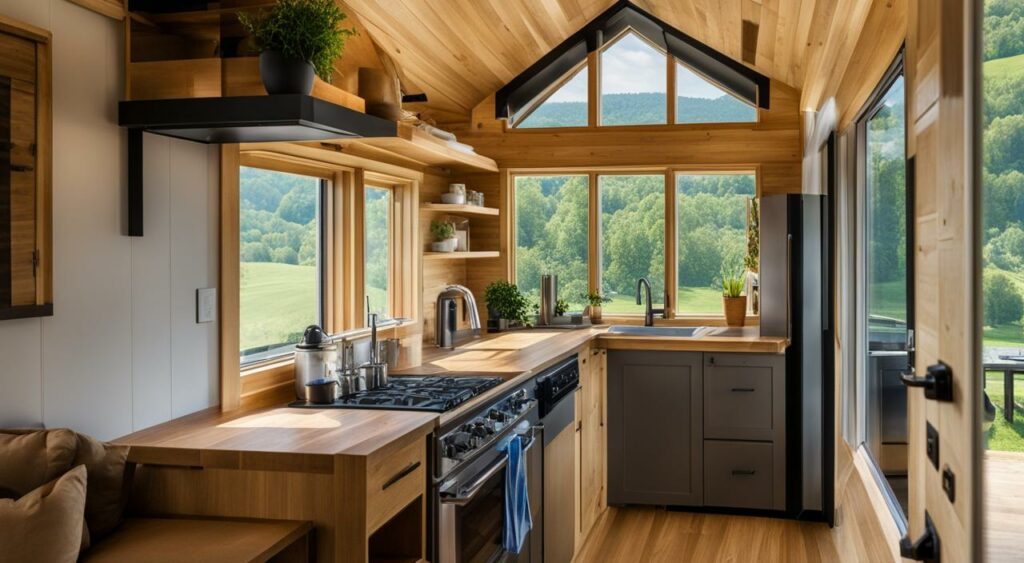
The tiny house movement has gained popularity in Pennsylvania over the years, with more individuals considering the benefits of tiny house living.
As a result, lawmakers have begun to explore specific legislation and rules that apply to tiny houses in the state.
In 2018, House Bill 1289 was introduced, seeking to establish guidelines and standards for the construction and placement of tiny houses on land zoned for residential use.
The bill aimed to create a state-level certification program for tiny house builders and establish minimum safety standards for tiny houses, including requirements for fire safety and ventilation.
While House Bill 1289 did not pass, it marked a significant step in recognizing the tiny house movement in Pennsylvania and the need for tailored legislation.
Following the introduction of the bill, a statewide coalition was formed to advocate for tiny house-friendly legislation, which has brought together lawmakers, builders, and enthusiasts to push for change.
Currently, there is no specific legislation in Pennsylvania that addresses tiny house living.
However, tiny houses can be built as accessory dwelling units or on foundations and must comply with local zoning laws and building codes.
Despite the lack of specific legislation, the tiny house movement in Pennsylvania continues to grow, with a rising number of builders, communities, and enthusiasts.
The state’s proximity to major cities and natural attractions makes it an attractive location for tiny house living, and the community is actively pushing for more clarity and flexibility in the legal landscape.
Benefits and Challenges of Tiny House Living in Pennsylvania
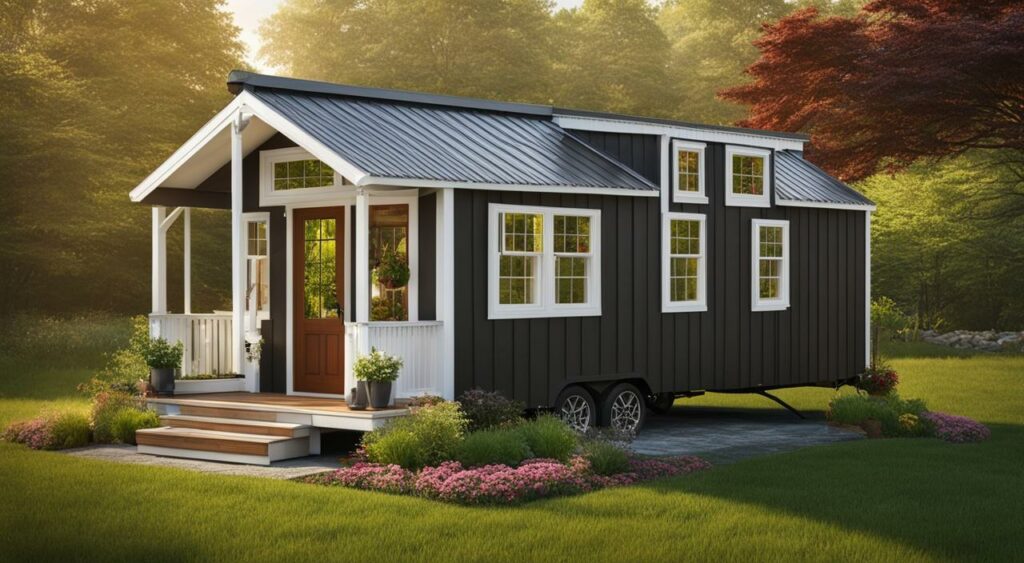
Living in a tiny house in Pennsylvania is becoming increasingly popular, but it also comes with its own unique set of benefits and challenges that potential tiny house owners should consider.
Are Tiny Houses Legal in Pennsylvania?
One of the biggest challenges for tiny house living in Pennsylvania is navigating the legal requirements.
Generally, tiny houses on wheels are considered recreational vehicles and fall under different legal regulations than traditional homes.
However, zoning laws and building codes can vary greatly by municipality, so it’s essential to research the specific regulations in your area.
Additionally, some municipalities may not have established regulations for tiny houses yet, leaving potential tiny house owners in a legal gray area.
Overall, while tiny houses are not explicitly illegal in Pennsylvania, it’s crucial to understand the specific regulations and requirements in your area before embarking on a tiny house build or purchase.
Can You Build a Tiny House in Pennsylvania?
Yes, you can build a tiny house in Pennsylvania, but it must comply with the state’s specific building codes and regulations.
The building codes may vary depending on the size and type of tiny house, so it’s essential to research the specific requirements in your area before beginning construction.
It’s also important to obtain any necessary permits and follow the proper building procedures to ensure compliance with state regulations.
Tiny House Communities in Pennsylvania
While tiny house communities are still relatively uncommon in Pennsylvania, they do exist.
These communities offer a sense of community and shared resources for those looking for a simpler, more sustainable lifestyle.
However, living in a tiny house community may come with some challenges, such as limited space and privacy, and any community regulations or shared resources may need to be carefully considered.
Benefits of Tiny House Living in Pennsylvania
Despite the legal challenges and potential drawbacks, tiny house living in Pennsylvania offers many benefits. Here are a few:
- Reduced living expenses
- Lower environmental impact
- Simplified lifestyle
- Increased mobility and flexibility
Challenges of Tiny House Living in Pennsylvania
While small living can be appealing, it does come with its challenges:
- Limited living space
- Difficulty finding legal parking and placement options
- Limited privacy and personal space
- Challenges with zoning and building regulations
Overall, while tiny house living in Pennsylvania comes with its own set of benefits and challenges.
It can be a rewarding and fulfilling lifestyle for those who are willing to navigate the legal requirements and adapt to a simpler way of living.

Conclusion
Living in a tiny house in Pennsylvania requires careful consideration of the laws and regulations surrounding tiny house living.
By understanding the zoning laws, building codes, and legal requirements, individuals can ensure compliance with local regulations and enjoy the many benefits of tiny house living.
Benefits of Tiny House Living in Pennsylvania
With smaller living spaces, tiny house owners can reduce their carbon footprint and live a more minimalistic lifestyle.
Additionally, tiny houses are often more affordable than traditional homes, making homeownership more accessible for many individuals.
Challenges of Tiny House Living in Pennsylvania
While tiny house living in Pennsylvania comes with many benefits, there are also unique challenges that must be considered.
Building and living in a tiny house can be a significant adjustment for individuals accustomed to more space, and it may be difficult to find suitable land to park a tiny house.
Additionally, living in a tiny house may not be suitable for individuals with large families or pets.
Overall, tiny house living in Pennsylvania can be an excellent option for individuals seeking a more sustainable and affordable lifestyle.
By understanding the legal considerations and challenges associated with tiny house living, individuals can make informed decisions and enjoy the many benefits of this unique housing option.
Other related articles
- Tiny House Laws Indiana: Unlocking the Secrets
- Tiny House Laws in Massachusetts: The Ins and Outs
- Tiny House Laws Colorado: A Friendly Guide
- Tiny House Laws in Florida: Everything You Need to Know
- Understanding Tiny House Laws in Virginia: A Quick Guide
- Tiny House Laws Wisconsin: Understanding The Law

Arc. Joseph Benson the CEO of Free tiny homes, Free Tiny Homes is a free, open-source, collaborative resource for anyone interested in building their own tiny home…


